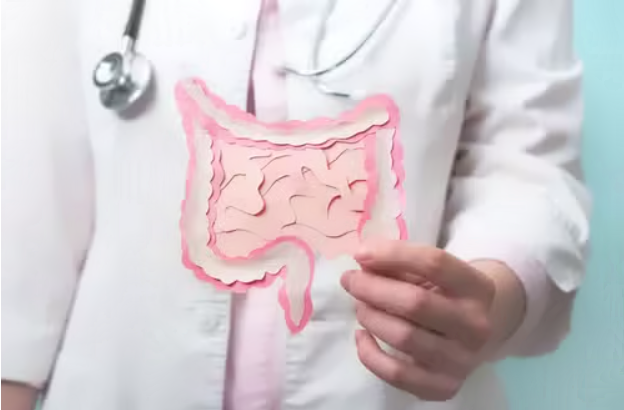Understanding the Warning Signs: When Should You See a Colorectal Specialist?
Your colorectal health is an essential part of your overall well-being. Yet, many people delay seeking medical help for symptoms affecting their digestive system due to embarrassment or misunderstanding. Ignoring these signs, however, could lead to complications or the progression of serious conditions. Recognising and addressing symptoms early can make a significant difference in treatment outcomes and quality of life.

If you’ve been wondering when to see a colorectal specialist, this guide will help you understand when to seek professional help.
The Importance of Digestive Health
Your digestive system doesn’t just break down food; it’s intricately connected to your body’s overall health. When something goes wrong with your colon or rectum, it can affect more than just your digestion, causing pain, fatigue, and other systemic symptoms. The good news? Many colorectal conditions are treatable, especially if they’re caught early.
Colorectal issues are more common than you might think, particularly in adults over 40. If you experience persistent symptoms that interfere with your daily life, it’s essential to consult a colorectal specialist sooner rather than later. Early detection of colorectal issues and treatment for these conditions are key to managing digestive health effectively and ensuring peace of mind.
Key Symptoms to Watch For
Persistent Abdominal Pain or Cramping
Occasional stomach discomfort can happen to anyone, but persistent abdominal pain or cramping may indicate a more significant issue. Conditions such as diverticulitis, inflammatory bowel disease (IBD), or even colorectal cancer often present with ongoing discomfort. It’s crucial to consult with a specialist if the pain:
- Persists despite lifestyle changes or over-the-counter treatments.
- Is accompanied by fever, nausea, or vomiting.
- Interferes with daily activities.
Rectal Bleeding
Blood in your stool should never be ignored. While haemorrhoids or anal fissures may be common and benign causes, rectal bleeding can also signal more serious issues, such as colorectal polyps, ulcers, or even colon cancer. If you notice blood on toilet paper, in the toilet bowl, or within your stool, it’s time to see a colorectal specialist to determine the underlying cause.
Changes in Bowel Habits
Pay attention to shifts in how often you use the bathroom, the consistency of your stools, or an increased sense of urgency. Changes in bowel habits such as constipation, diarrhoea, or narrow stools could point to:
- Irritable bowel syndrome (IBS)
- IBD (e.g., Crohn’s disease or ulcerative colitis)
- Colorectal cancer
Significant or persistent changes should prompt a visit to a colorectal specialist for further assessment.
Unexplained Weight Loss or Fatigue
Sudden weight loss or ongoing fatigue without a clear cause may be related to your digestive health. These could indicate malabsorption issues, systemic conditions, or even colorectal cancer, particularly if coupled with other symptoms like pain or bleeding.
Persistent Bloating or Gas
Feeling excessively gassy or bloated can sometimes suggest food intolerances, but when accompanied by pain or other digestive symptoms, it may warrant a closer look for conditions like diverticulitis, IBD, or blockages in the digestive tract.
When to See a Colorectal Specialist
If you’re experiencing any of the symptoms above, it’s crucial to act promptly. Early detection of colorectal issues, including polyps or colorectal cancer, leads to significantly better treatment outcomes. A colorectal specialist has the expertise to evaluate symptoms, perform diagnostic procedures such as colonoscopies, and create a tailored treatment plan for your condition.
Common reasons to consult a colorectal specialist include:
- Symptoms persist for several weeks.
- A family history of colorectal cancer or polyps.
- Age-related colorectal screening for people aged 45 and older.
- Previous diagnosis of IBS, IBD, or diverticulitis that now appears to worsen or change.
Don’t let embarrassment or fear prevent you from seeking medical attention. Your health and peace of mind are worth it.
Most colorectal issues can be effectively treated when diagnosed early. Whether you’re dealing with minor symptoms like occasional gas or more alarming issues like rectal bleeding or severe pain, it’s always better to err on the side of caution. Seeking timely help from a colorectal specialist ensures you’re taking an active step towards better digestive health and improved quality of life.
If you’re experiencing any concerning symptoms or have questions about your colorectal health, don’t wait. Contact Dr Vasant Rajan at Core Surgery for expert care. Dr Rajan provides consultations at Bay Medical Specialists in Capalaba and Queensland Group of Specialists centres at Upper Mt Gravatt. He admits, operates, and manages patients at Greenslopes Private Hospital.
Take the first step towards prioritising your health and schedule an appointment today.
